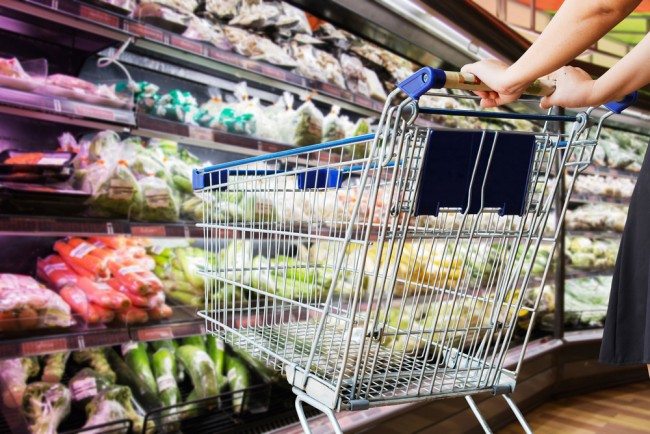The UK’s inflation rate is expected to have remained in negative territory when official figures are released on Tuesday, leaving the Bank of England in little hurry to start raising interest rates, reports The Guardian.
Economists expect data for October to show the inflation rate as measured by the consumer prices index (CPI) held at -0.1 per cent, according to the consensus in a Reuters poll. Inflation has been at or close to zero for most of this year and first dipped into negative territory in April when prices fell for the first time in more than 50 years.
The rate has been pulled down sharply by a combination of tumbling global commodity prices, from oil to food, and the effects of a strong pound, which makes imports cheaper.
Martin Beck at the consultancy Oxford Economics expects those factors to keep the inflation rate at -0.1% in the latest figures. There should also be some downward pressure on inflation as the effects of higher university fees fade.
“Price growth is continuing to be depressed by the strong pound and cheaper imports. And the effect of the tripling of university tuition fees, which came into effect in 2012, will finally drop out of the annual comparison in October, taking, all else equal, 0.2 percentage points off annual inflation,” said Beck.
While some have described low inflation as a sign of economic fragility, it relieves the pressure on household budgets after several years of wages falling in real terms following the financial crisis.
BoE governor Mark Carney has sought to reassure households that the UK is not headed for all-out deflation, where widespread price falls become entrenched. Economists echoed that ahead of these latest figures.
Chris Hare, economist at Investec, is forecasting a -0.1 per cent reading in this week’s figures but says there are three reasons why it will not herald the start of a “persistent deflationary episode”.
“First, most of the fall in the inflation rate was driven by falls in volatile clothing and energy prices. Second, inflation has been very stable recently … Third, as the effects of past energy price falls, import price softness – from strength in the pound – dissipate, and as domestic labour costs continue to build, inflation should start picking up markedly at the turn of the year,” he said.
For the Bank, low inflation has meant there is little immediate pressure to increase borrowing costs from their record low. The Bank is set an inflation target of 2% by the government, but the rate has been below that since the start of 2014.
The Bank says it expects inflation to stay close to zero for the rest of this year and rise only slowly next year.
Many economists predict that outlook and an uncertain picture for global growth will hold the Bank back from increasing interest rates for some time. But Carney has said it is “reasonable” for households to expect a rate rise over the coming 12 months and some forecasters say the Bank could raise rates as soon as February.


